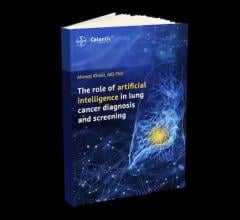
Getty Images
May 20, 2021 — The American College of Radiology (ACR) is calling on radiologists nationally to respond to a solicitation for public comment from the Centers for Medicare and Medicaid Services (CMS) about lung cancer screening with low dose computed tomography (LDCT).
The ACR and others urged CMS to begin this national coverage analysis shortly after the US Preventive Services Task Force lowered the initial age and smoking history requirements in its lung cancer screening guidance.
“It is essential for the physician community, patient advocates and other stakeholders to participate in the CMS review process to ensure expanded access to this essential preventive screening for many more Americans, including vulnerable populations that may have not met the existing patient eligibility criteria,” said ACR Chief Executive Officer William T. Thorwarth, M.D., FACR. “We are encouraged by CMS’ willingness to consider necessary changes to coverage documents that were last updated in 2015. It now is up to the medical community to provide the information required to effect change.”
CMS is accepting comment through June 17, 11:59 pm ET. The ACR will provide comments to CMS during the 30-day comment period. The ACR anticipates CMS will issue a proposed decision memo by November 18. A final coverage analysis will be completed by February 16.
“This Medicare coverage update would support a screening eligibility expansion that would spur more providers to start conversations with eligible patients,” said Debra Dyer, M.D., FACR, Chair of the ACR Lung Cancer Screening Steering Committee. “This would help ease lung cancer outcomes disparities — particularly among women, Black men and those in rural areas. We look forward to working with CMS to update its coverage policy, which would enable the medical community to strike a blow against the nation’s leading cancer killer by using lung cancer screening to its full advantage,”
The ACR website includes lung cancer screening information and resources, as well as responses to frequently asked questions that provide evidence for needed changes.


 September 12, 2024
September 12, 2024 








